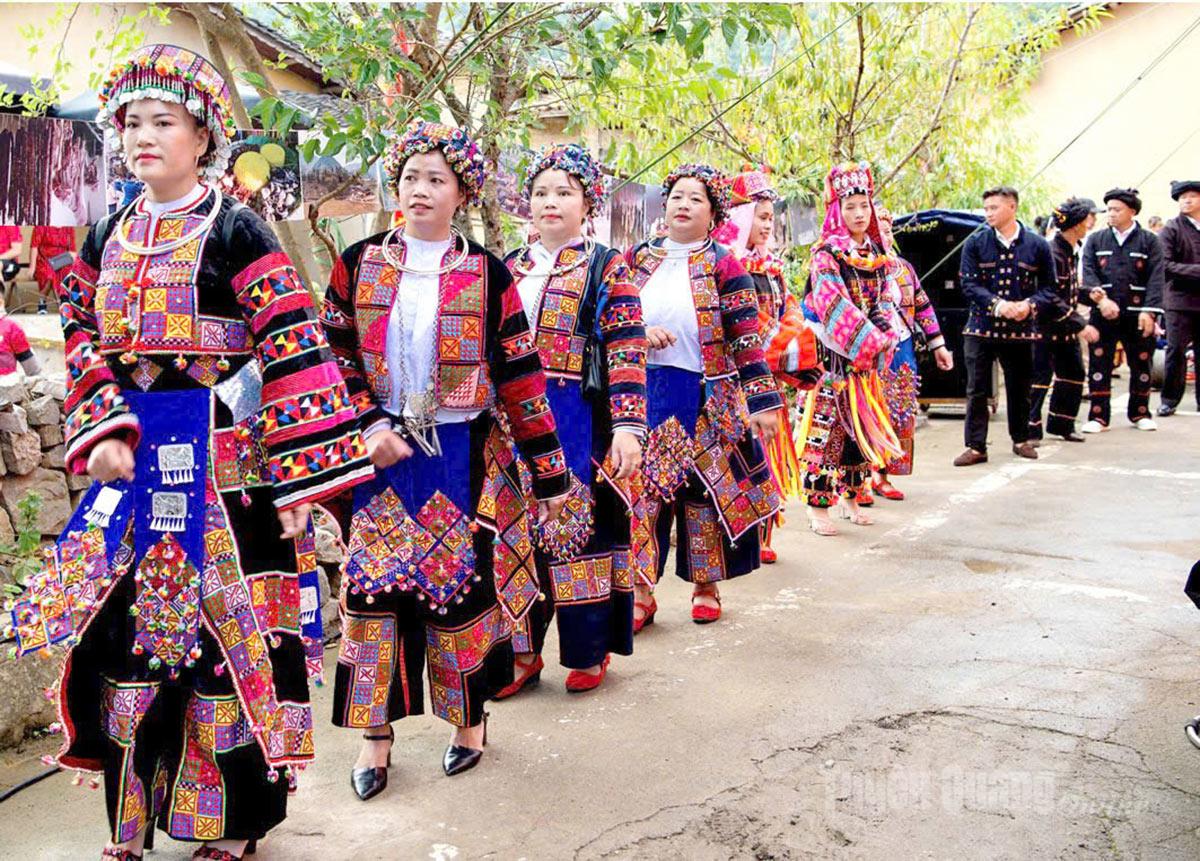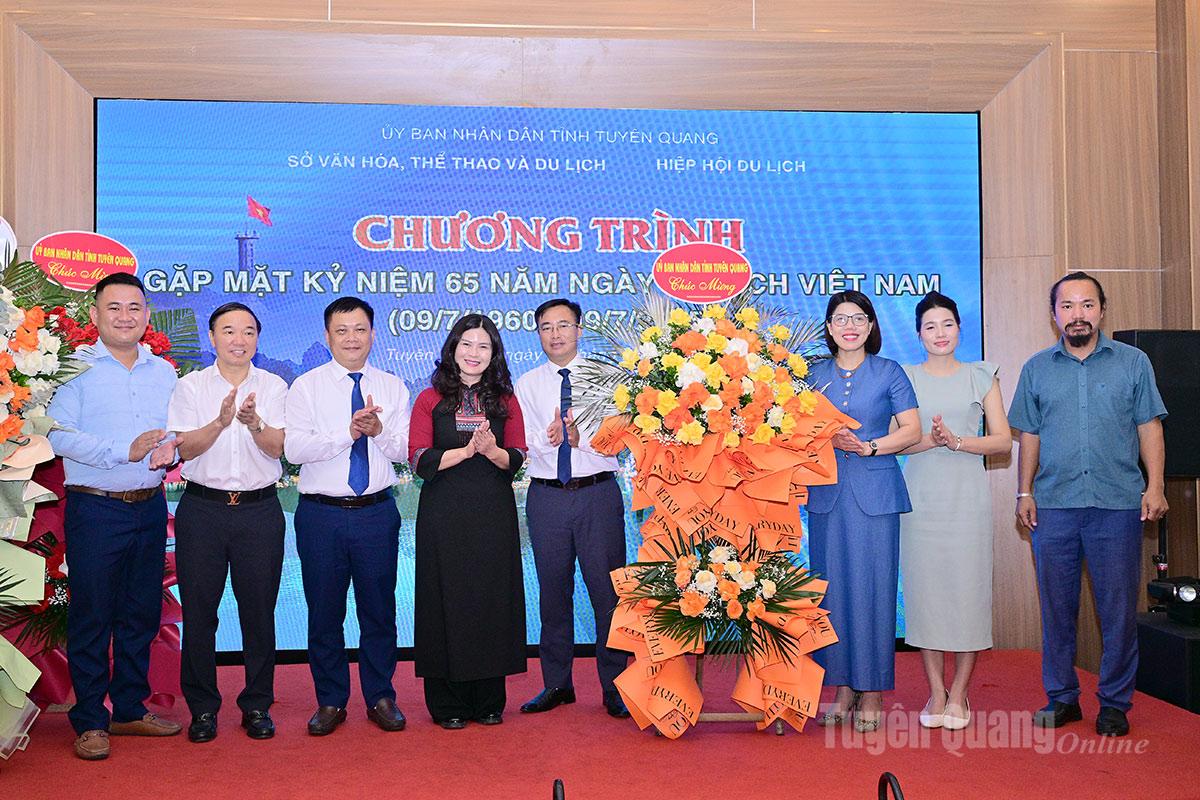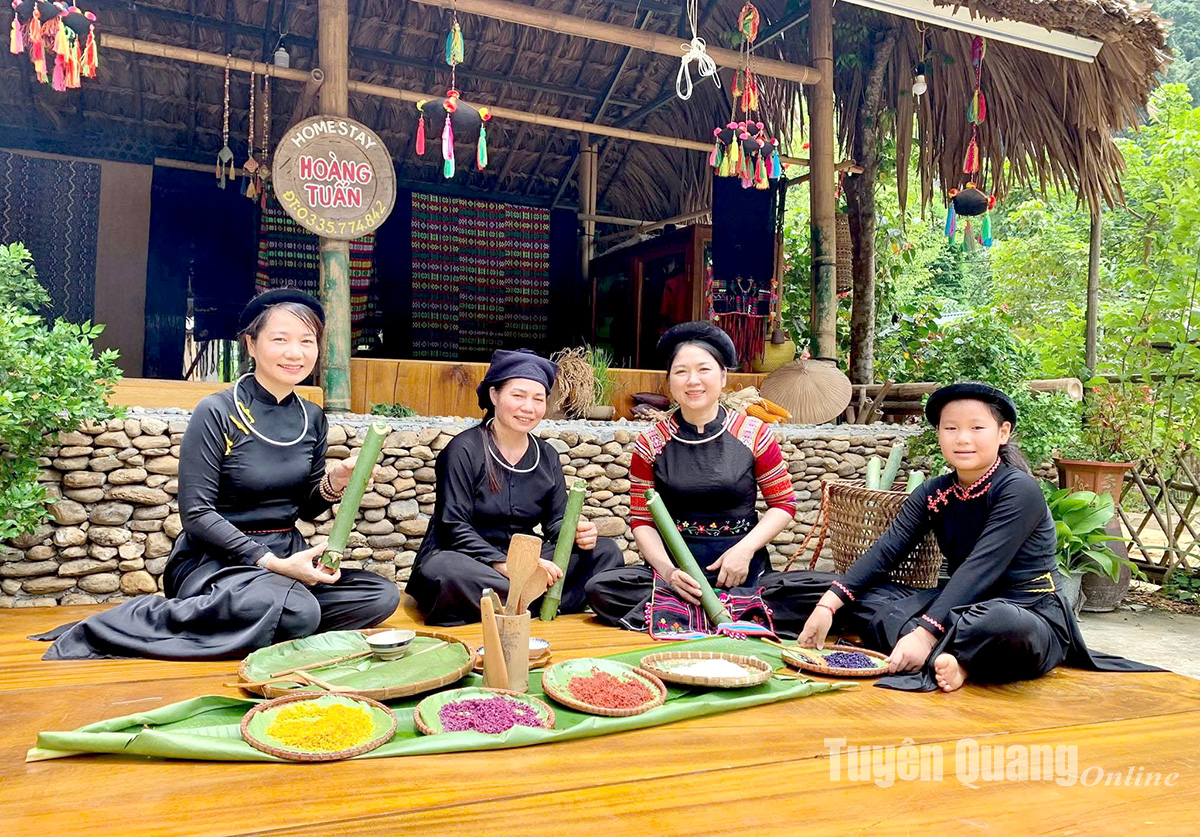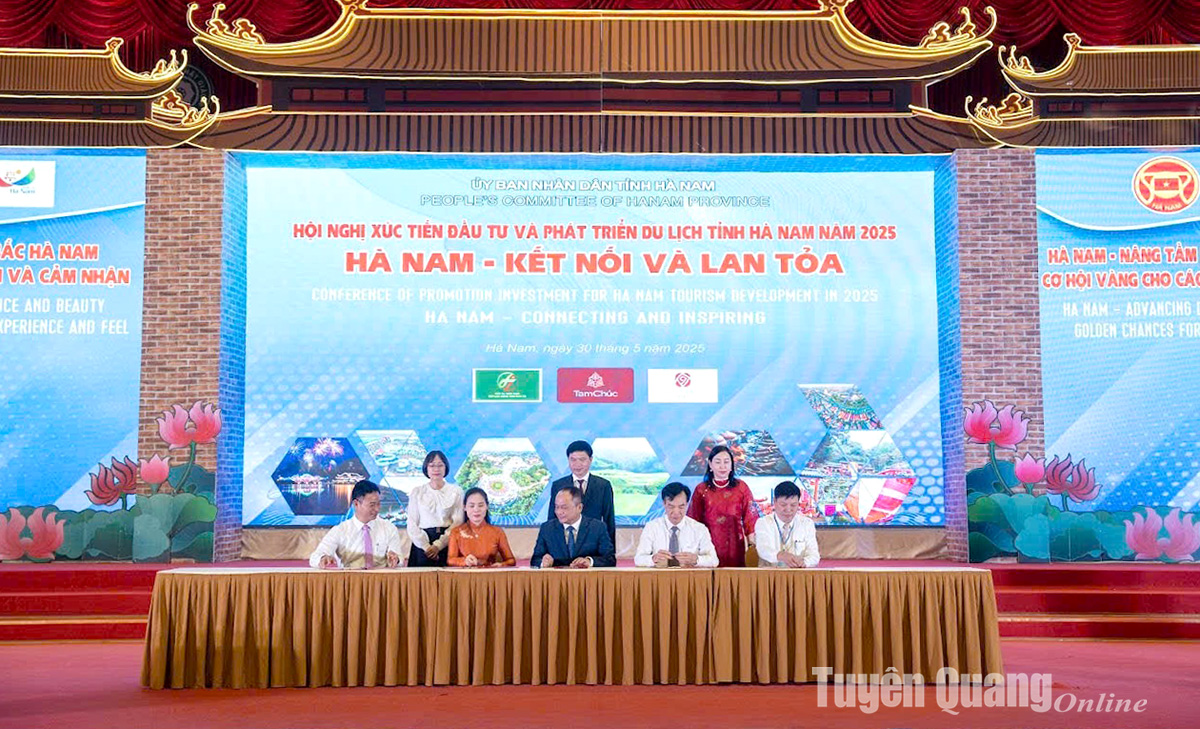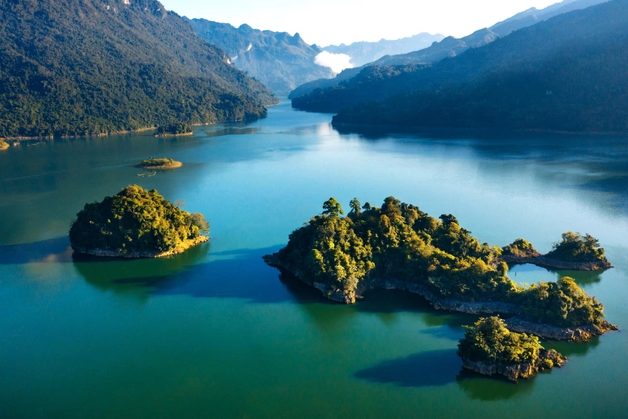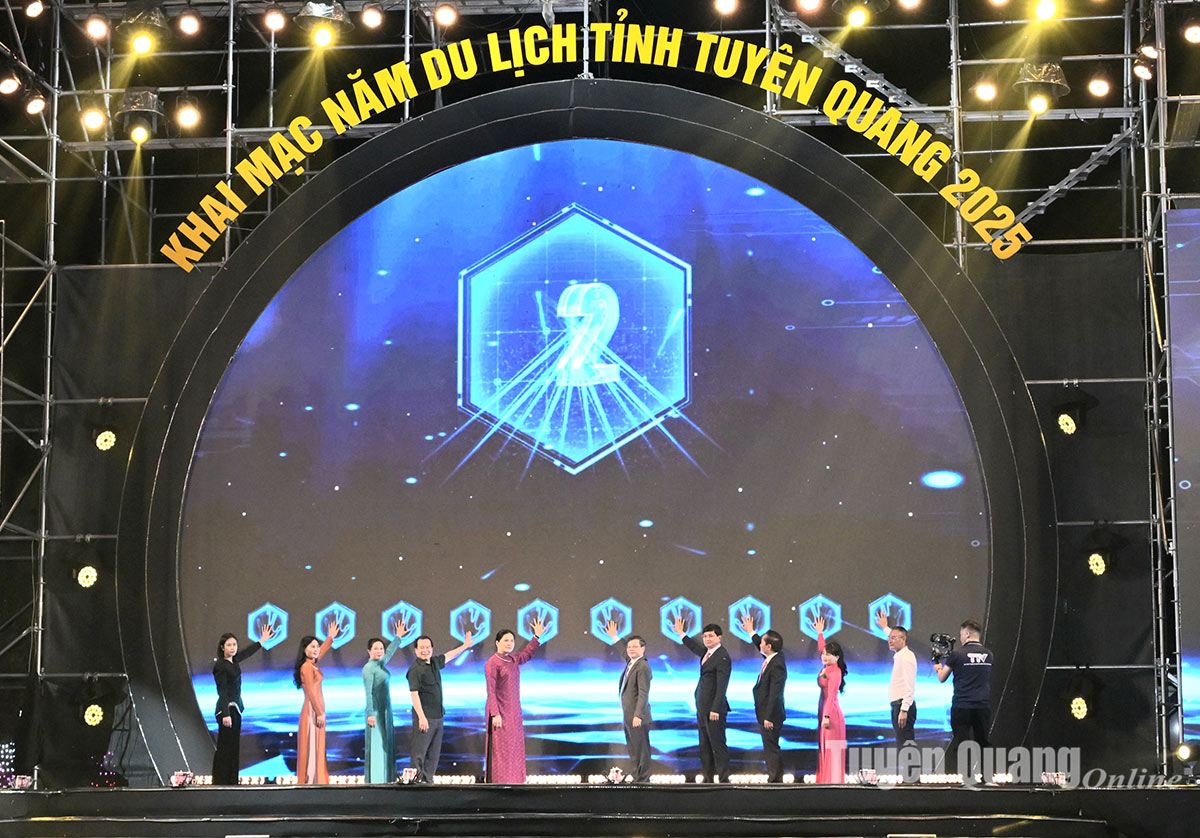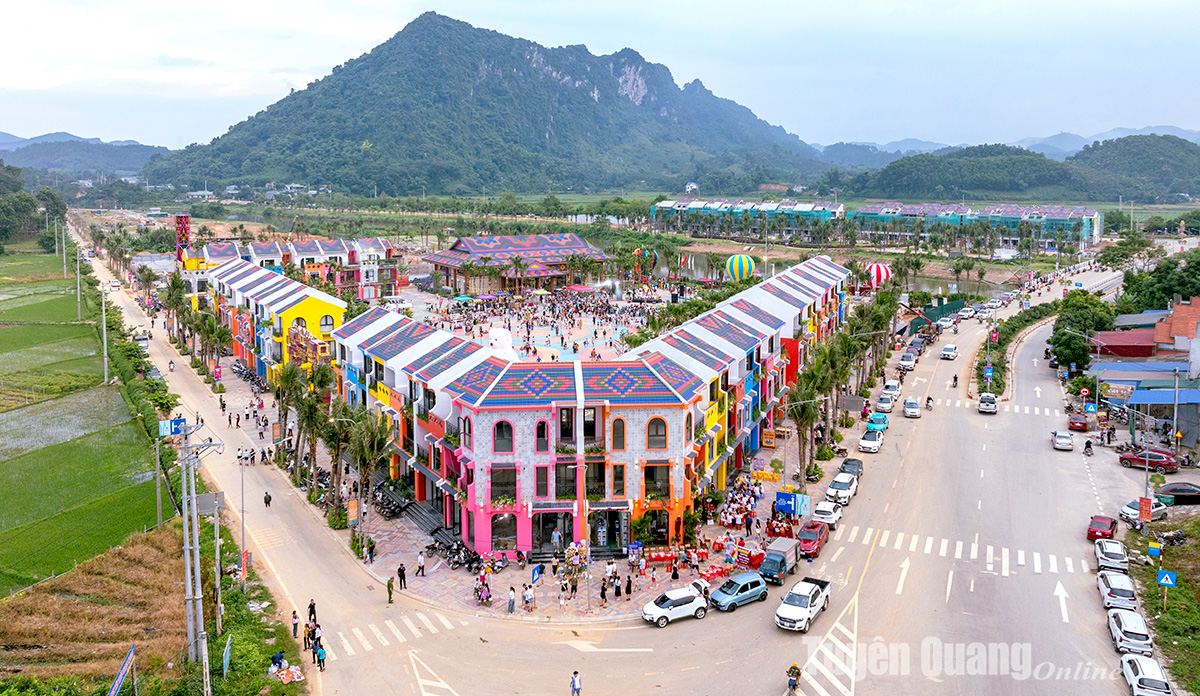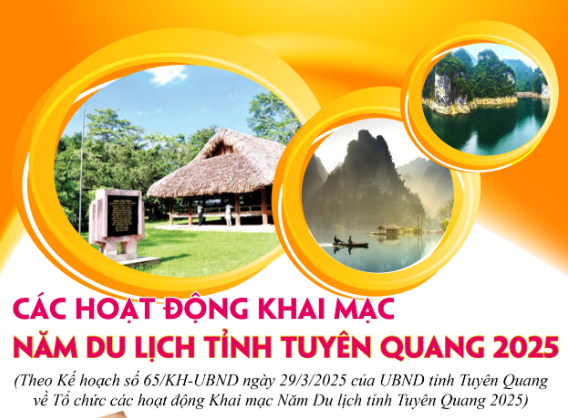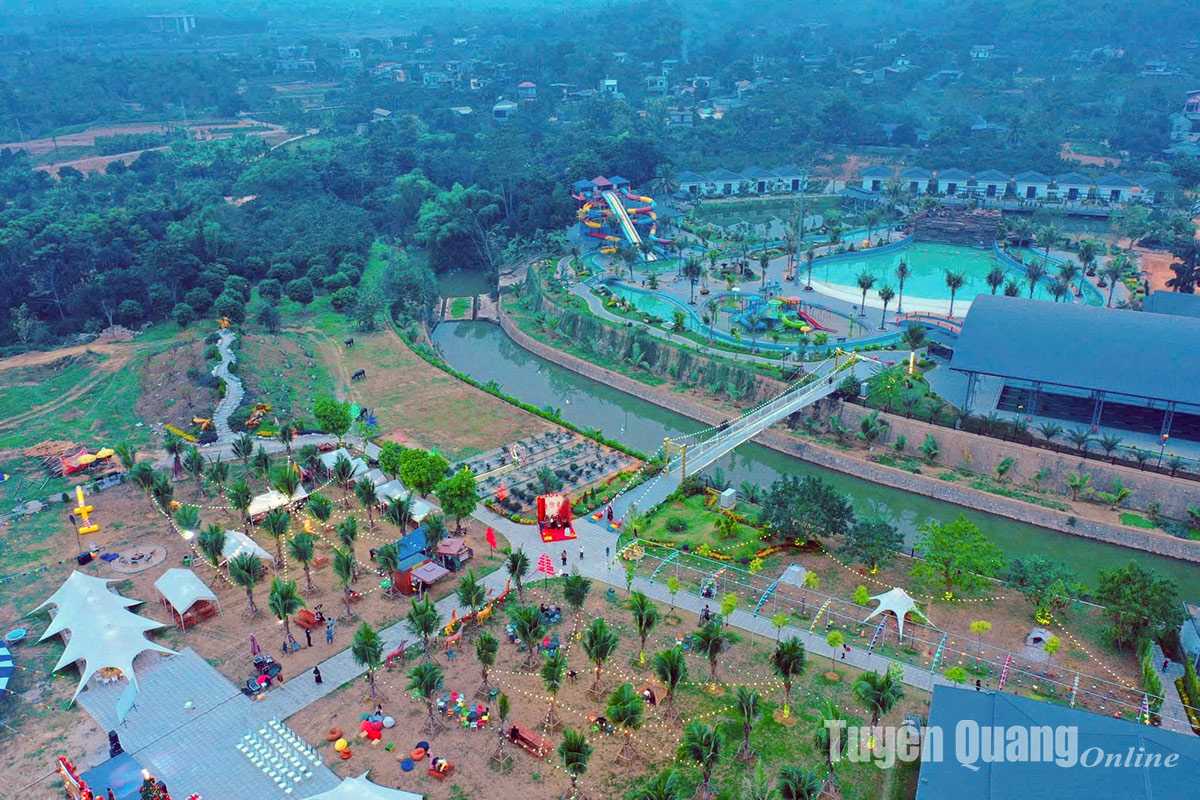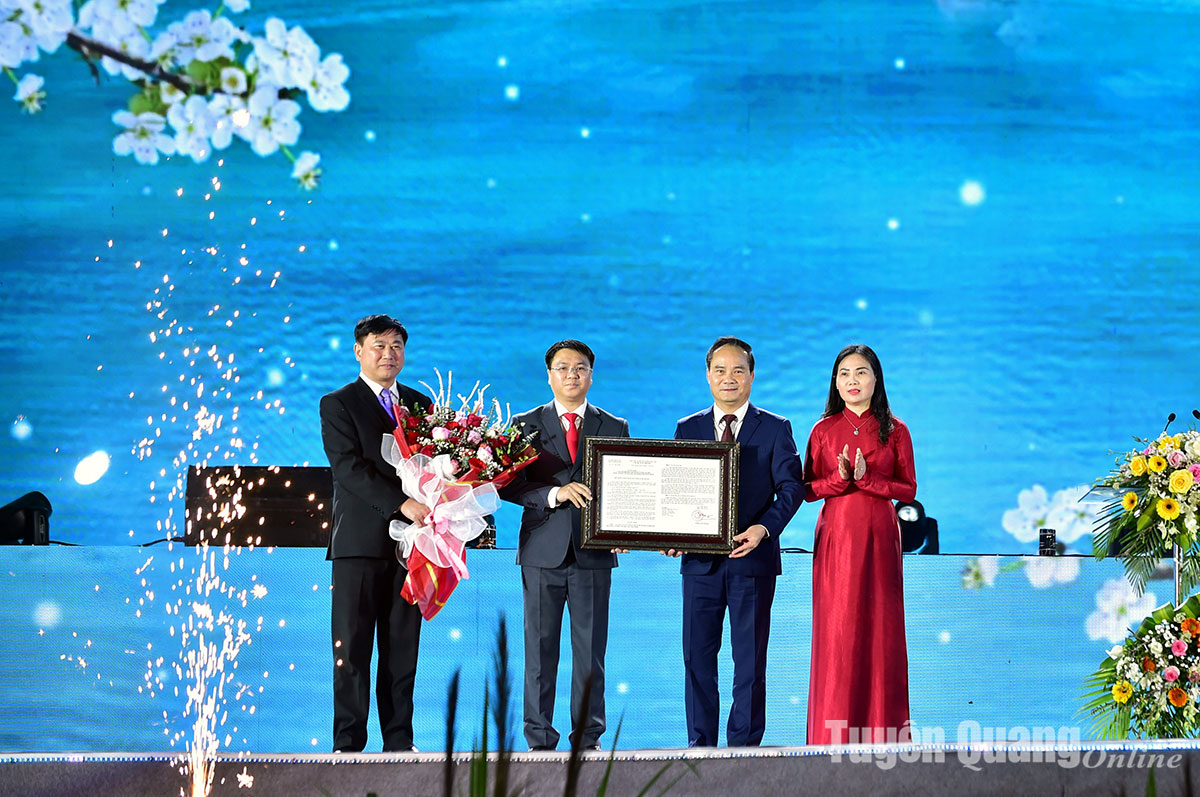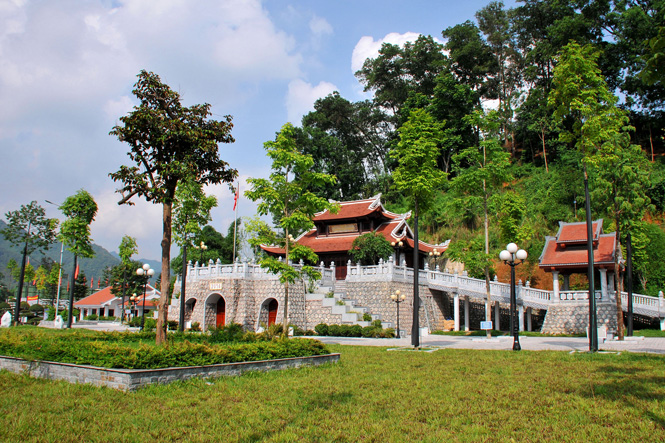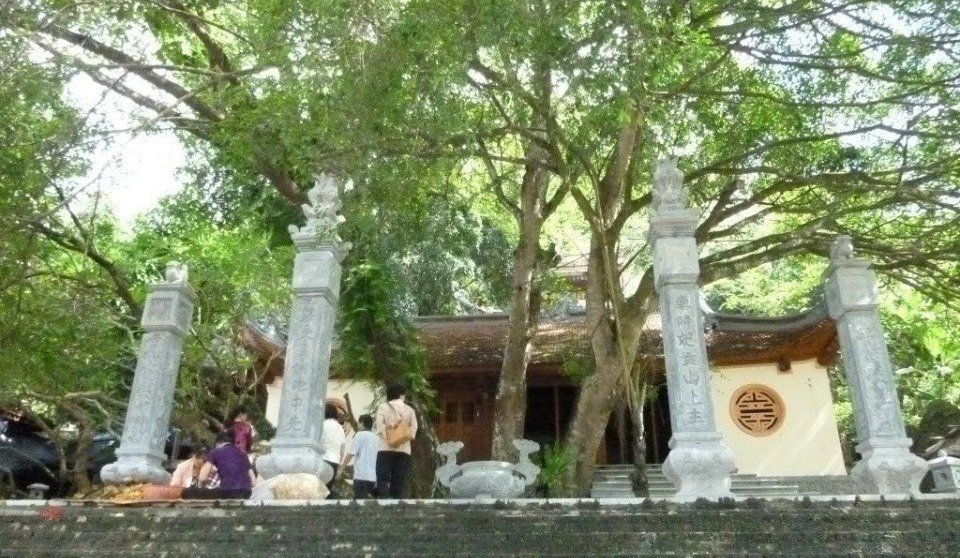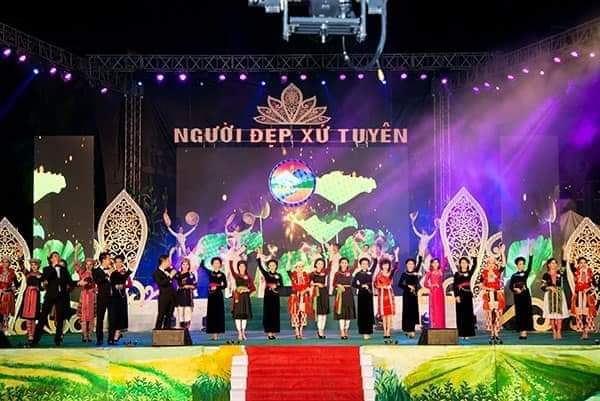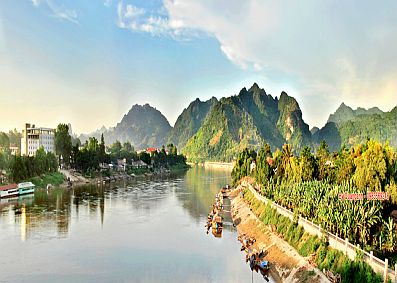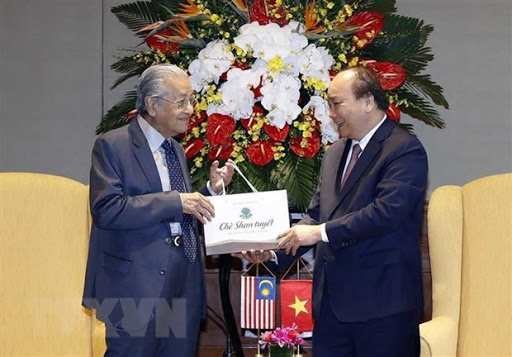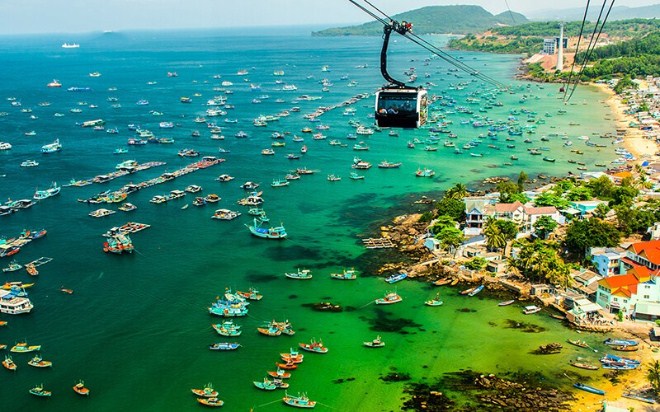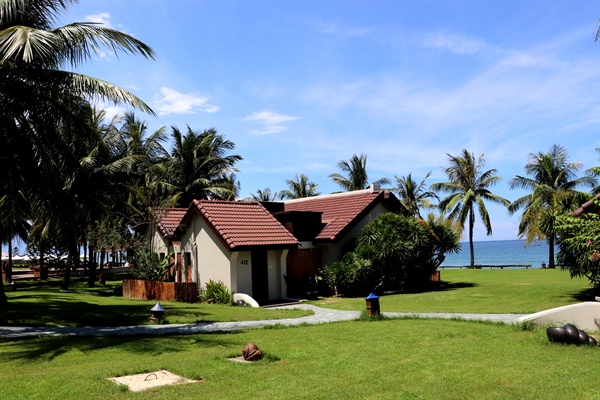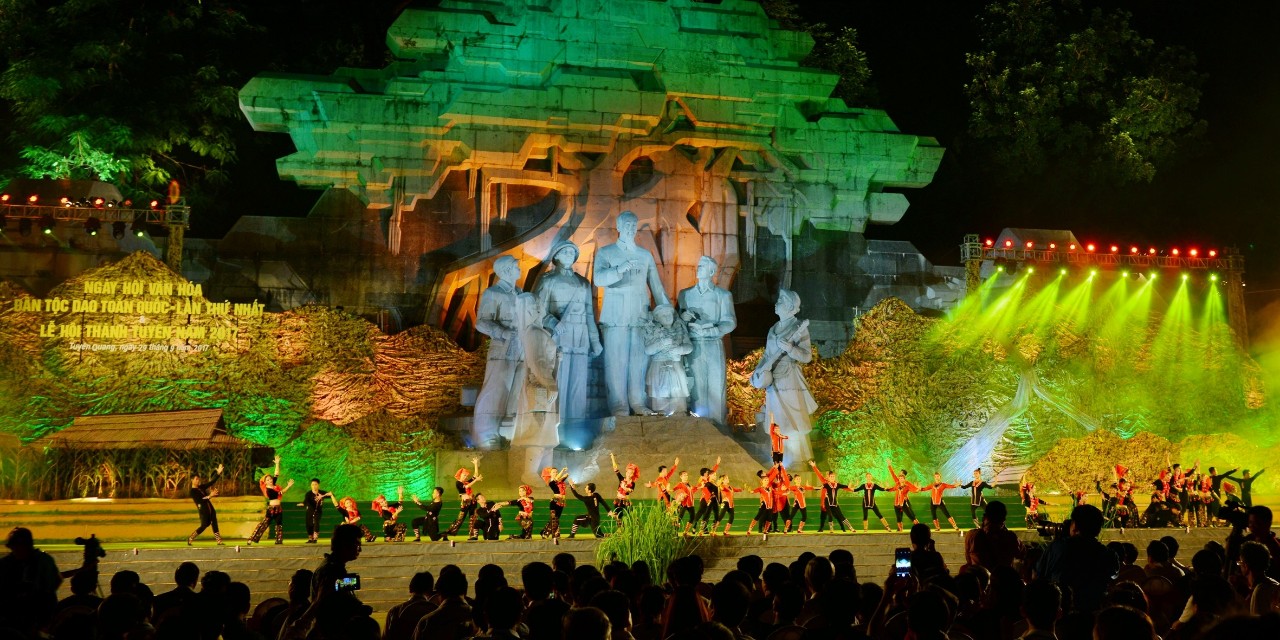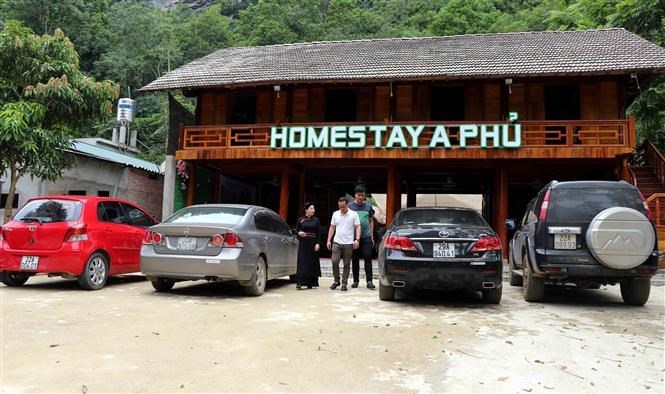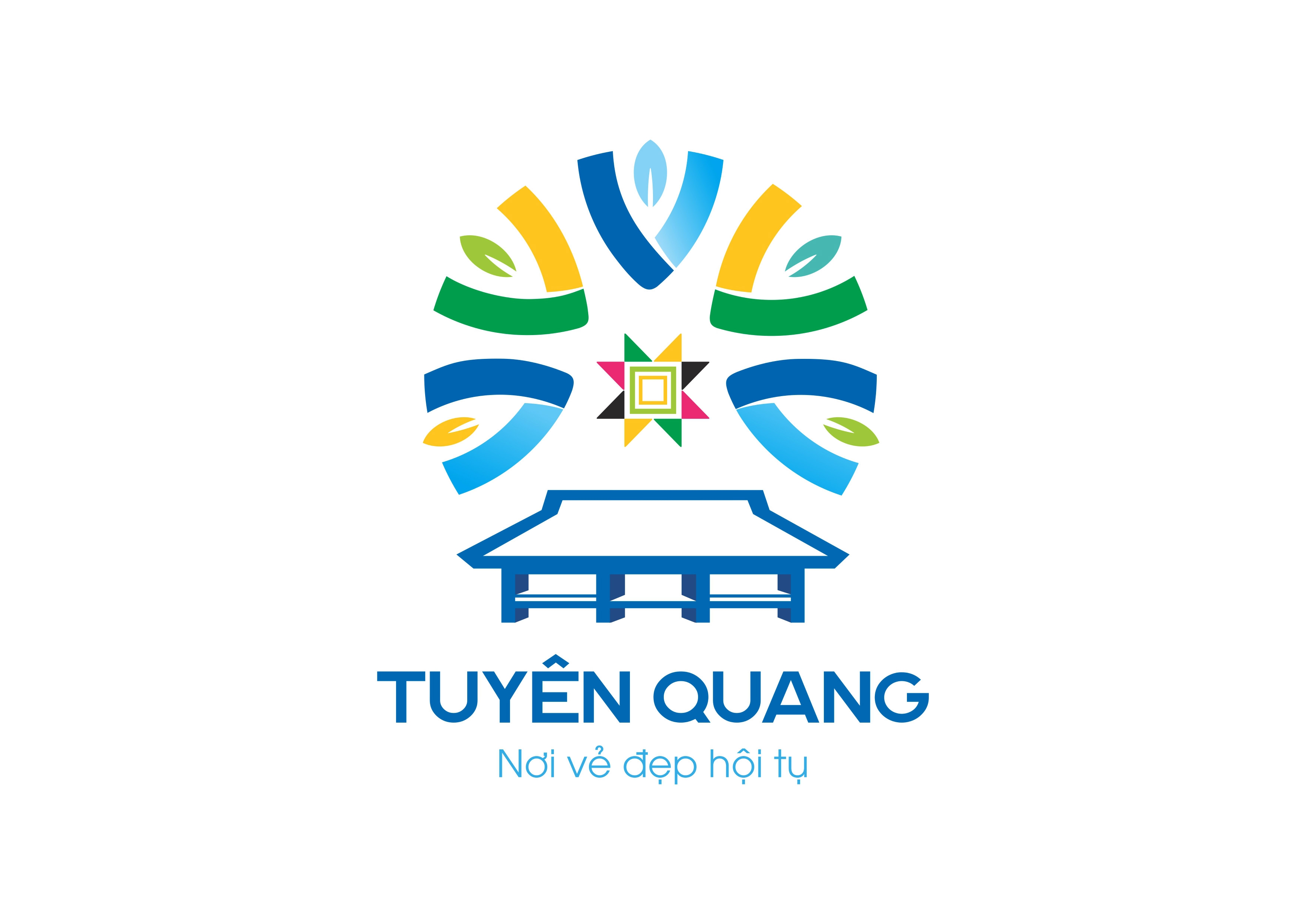X
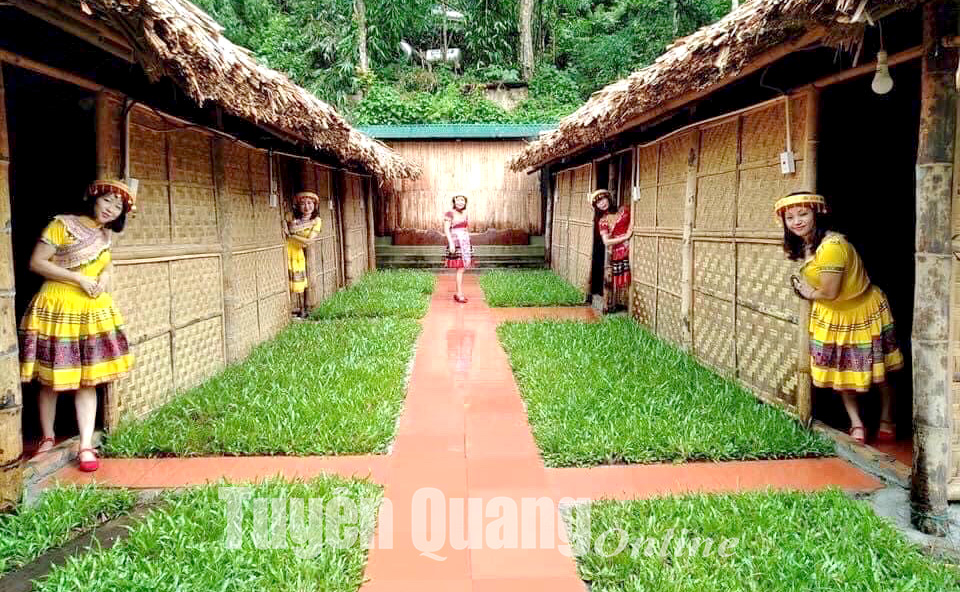
The "green" space at A Phu homestay, Na Tong village, Thuong Lam commune (Lam Binh).
Tourism "green"
During a trip to the highlands, a group of young Ha Thanh friends made a clip about the homestay space in Lam Binh. Naturally, in the trays of rice or in the photos of the experience, we all recognize environmentally friendly utensils. It is a bowl, pair of chopsticks, drinking cup, spoon and fork made of extremely elegant bamboo. Larger than a set of tables and chairs or small houses for bathing in tobacco leaves are also built of bamboo. Very unique, very impressive.
Obviously, although plastic is convenient, it is no longer the choice of upland people. Especially in tourist areas, plastic waste is reduced from the habit of using environmentally friendly products. Sharing about this idea, Ms. Dang Thi Van Anh, owner of A Phu homestay, Na Tong village, Thuong Lam commune (Lam Binh) said that each countryside has its own characteristics. That particular feature makes up the identity of each community tourism village. And putting bamboo, bamboo, rattan and bamboo products in a homestay is a way to make a difference.
Ms. Nguyen Thi Tuyen, in Kinh Mon (Hai Duong) with her family staying at A Phu homestay shared: It is true that you will see that this homestay is more than what is advertised and introduced on social networks. Because, only when you see, touch and taste can you feel the aftertaste of the mountains and forests. It reminds us of a deep memory of the new rural countryside associated with green and one-colored bamboo.
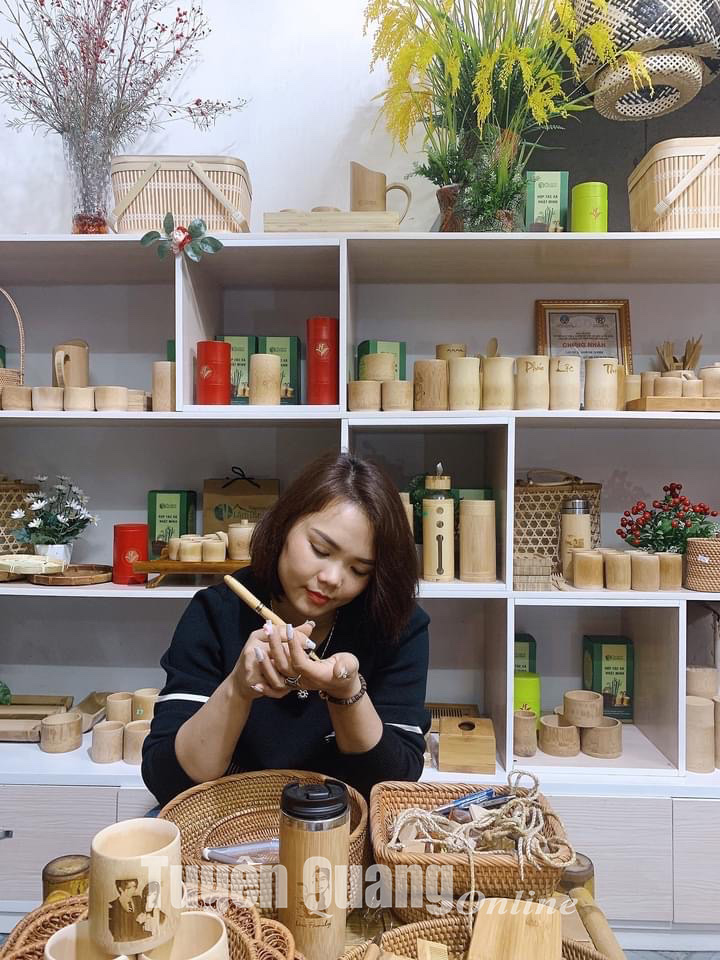
Tay girl Trinh Thi Thao and bamboo products.
The symphony of bamboo
When bamboo utensils are on the throne, plastic items will be reduced. Ma Thi Thoa, Chairwoman of the Women's Union of Hung My Commune (Chiem Hoa) affirmed. She said, now the sisters in the commune all use rattan to go to the market. The decorative objects in the house such as flowerpots, cosmetic baskets, betel nut of mothers and grandmothers... are all made of rattan, bamboo, and bamboo.
Up to now, eco-friendly utensils have not only replaced plastic products but also become unique tourism products. At the Tuyen Quang Trade and Tourism Fair in 2020, the stall selling bamboo products is always crowded with visitors. It is surprising that the historical relics and landmarks of the old war zone are boldly depicted on bamboo cups and plates. Sharing about this unique idea, young girl Trinh Thi Thao, director of Nhat Minh rattan and bamboo cooperative, Na Kem village, Khuon Ha commune (Lam Binh) said with pride: Through these products, I would like to introduce to visitors that Tuyen not only has environmentally friendly products, but this land was honored to be chosen by the Party Central Committee and Uncle Ho as the Capital of the Liberation Zone, the Capital of the Resistance. There, there are places that have gone down in the history of nation building and defending the nation such as Na Naa shack, Tan Trao banyan tree, Hong Thai communal house, Tan Trao communal house... Then Thao affirmed: Historical tourism, Ecology is a popular trend. While Tuyen Quang converges both of these. Tourists like me have to grab to attract customers.
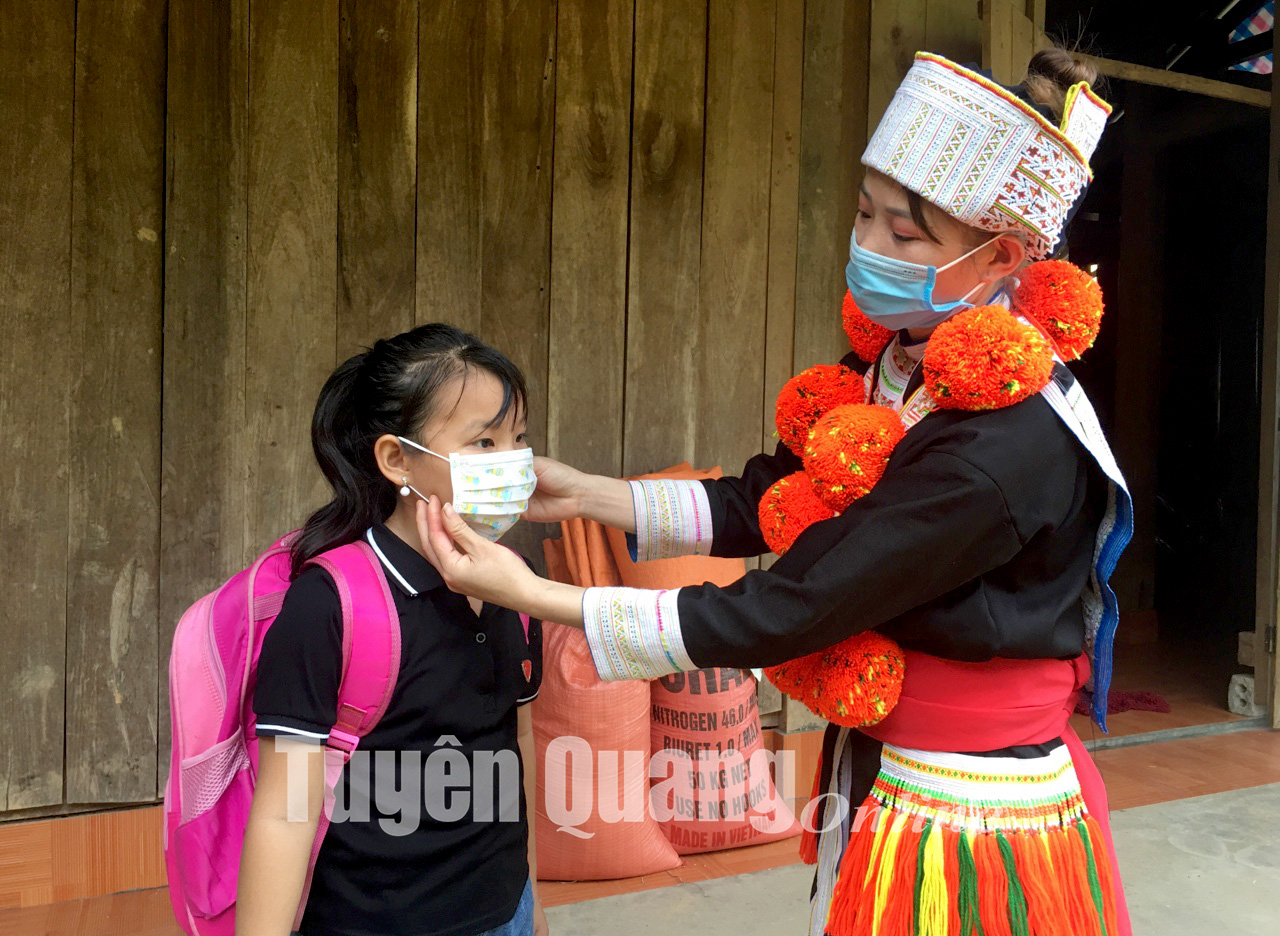
Students were given masks from the plastic waste collection movement of the Women's Union of Son Phu Commune (Na Hang).
Live "green"
The story of "green" living in the highlands is not only about using environmentally friendly products to replace plastic but also about how to make those plastic items useful.
For example, women in Son Phu commune (Na Hang), from the reality of poverty, they collect plastic bottles to sell to buy masks. "A double job, not only the environment is clean and beautiful, but people also have masks to wear during the epidemic season" - Ms. Ban Thi Khe, Chairwoman of the Commune Women's Union briefly talked about her commune's movement of exchanging trash for masks as follows: so. She said, relatives understand, each plastic bottle they collect on the way to the fields, working in the fields or going to the market, taking their children and grandchildren to school... is a way they save money on buying masks. The roads of villages, schools, cultural houses, markets, rice fields, tea hills... are thus more clean and beautiful because garbage is collected daily.
Leading us to visit Shan Tuyet tea hill with more than 2 hectares wide, Mr. Dang Van Dau, Phia Chang village, Son Phu commune proudly said: The tea here is clean tea. Clean from planting, tending and harvesting. And of course the tea hill must also be clean. Bottles of water to drink, plastic bags for food are also collected and sold. With ethnic people, whatever is practical, they do.
Practical. That is a measure of the effectiveness of the plastic waste collection movement in Tuyen Quang. In 2021, Tuyen Quang city is recognized by the Prime Minister as a grade II urban area. It is the raising of people's awareness in preserving and protecting the environment that has helped Tuyen Quang city achieve environmental criteria, one of the important criteria for the city to become a grade II city. .
The city's waste collection activities are evidenced by huge numbers: 100 households in communes and wards have invested in building 100 composting tanks for organic waste. Over 22,000 union members, members and the masses collected over 86 tons of waste, of which over 5 tons were plastic waste. The rate of hazardous waste and medical waste being treated up to the respective national technical standards and regulations reaches 100%; the rate of ordinary solid waste collected and treated is 95.5%.
Liveable countryside is flourishing in the simple jobs of the people of Tuyen - the collection of waste. Clean the house, clean the alley, clean the whole village. That is an effective way that people have been doing to build a more beautiful picture of their homeland every spring.
According to Tuyen Quang Online Newspaper
